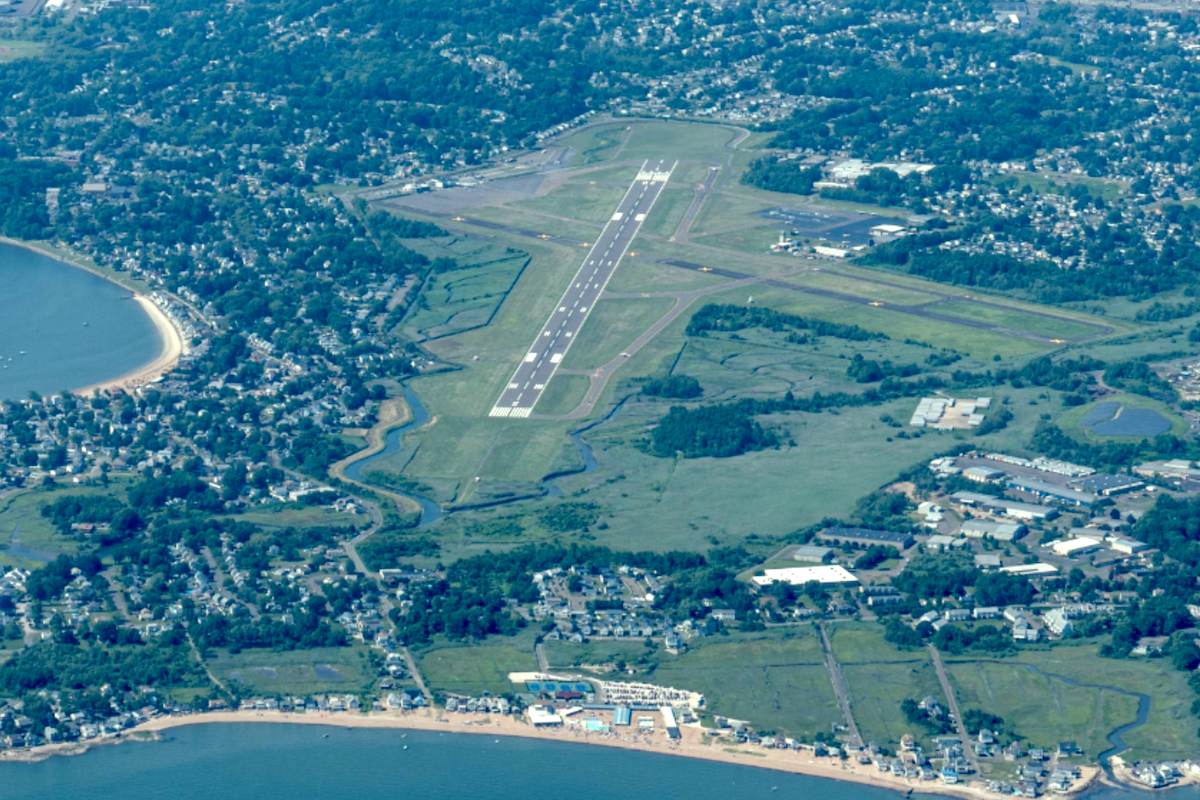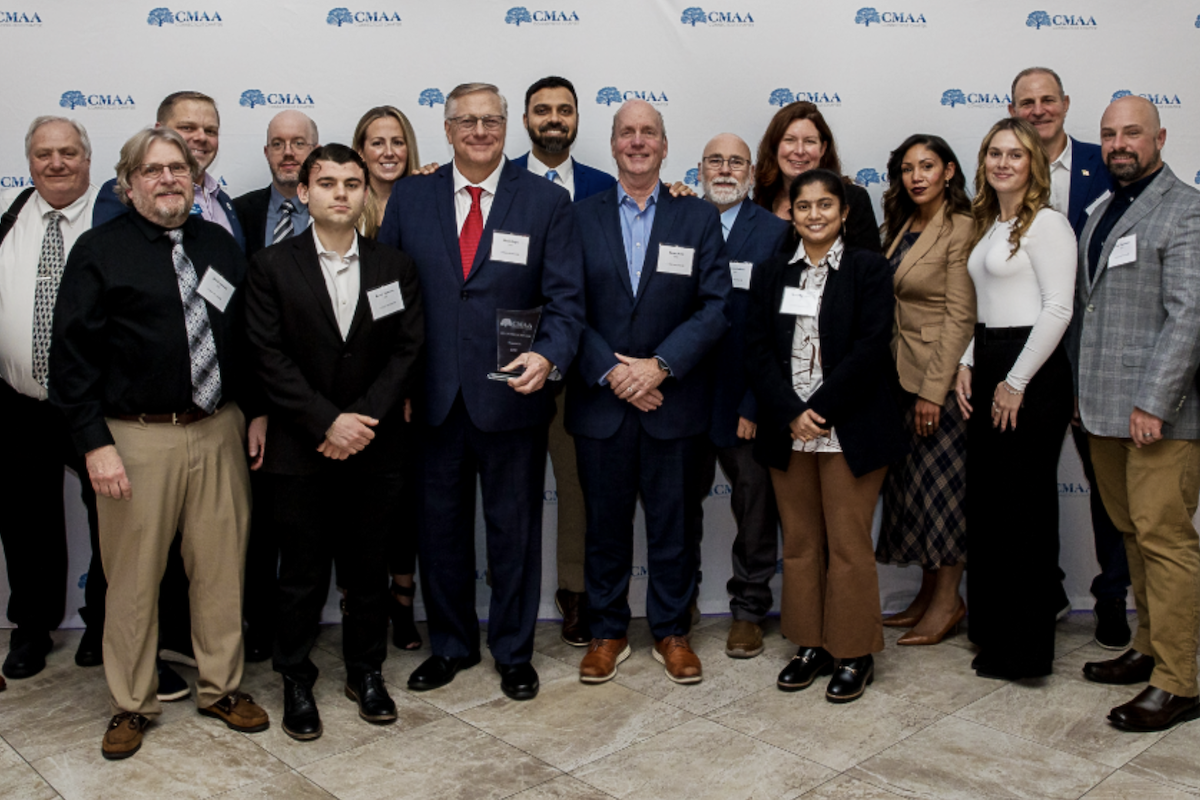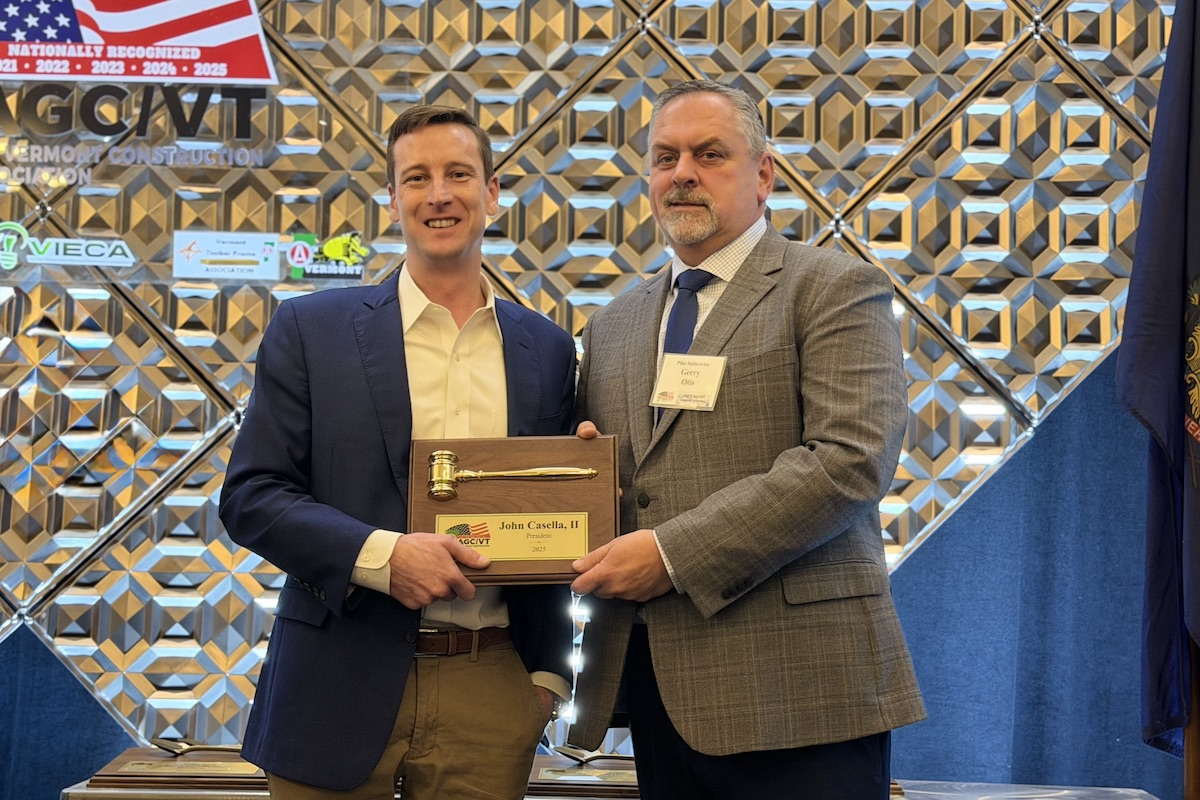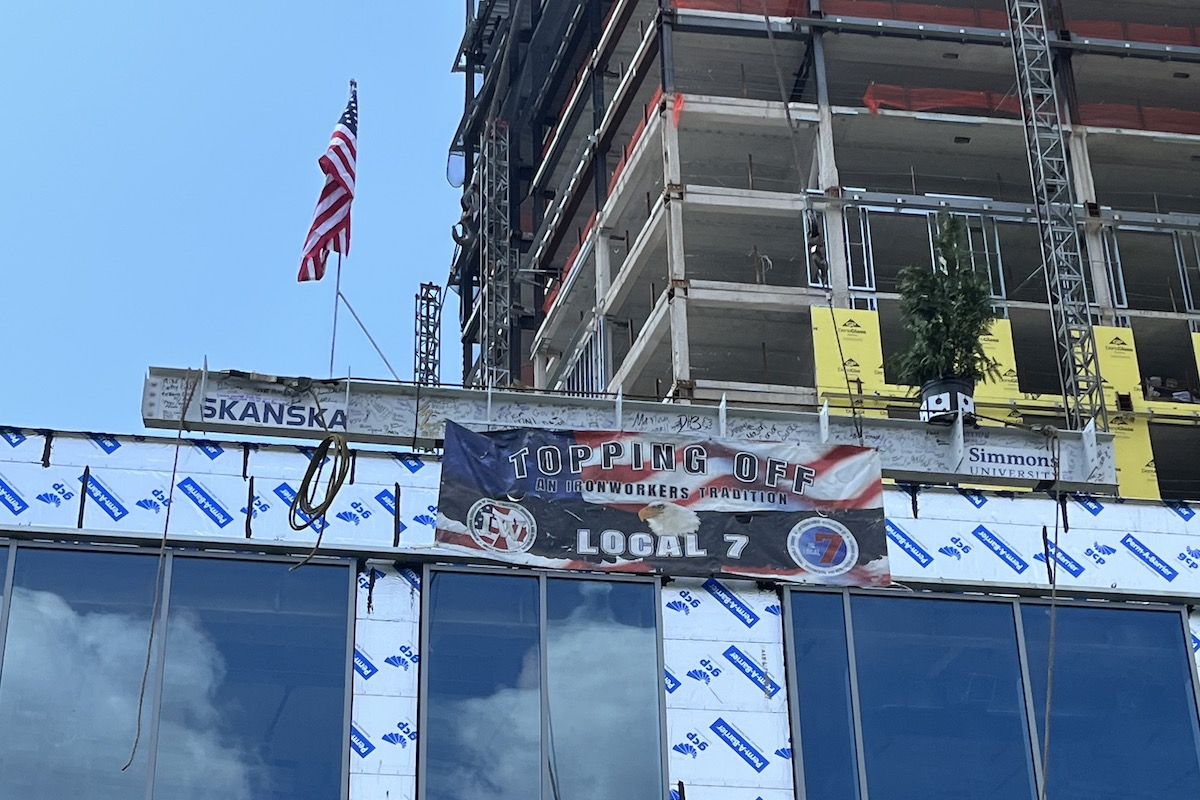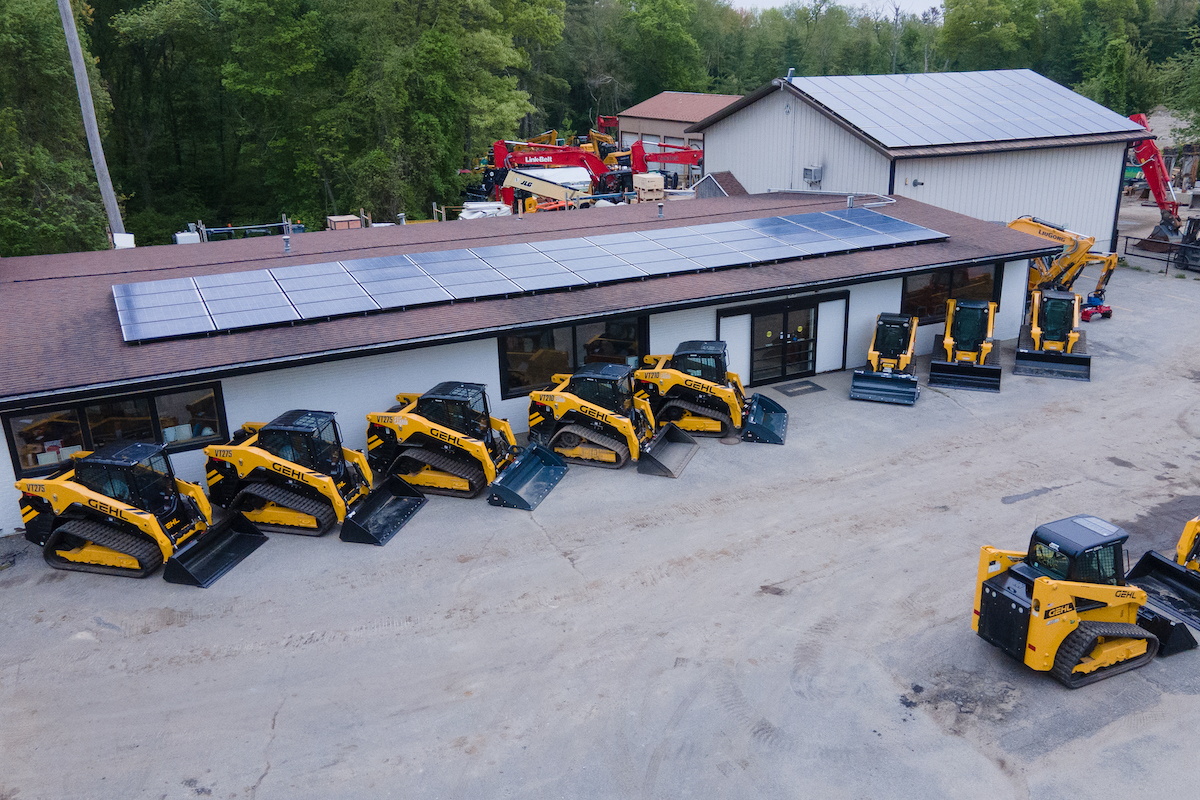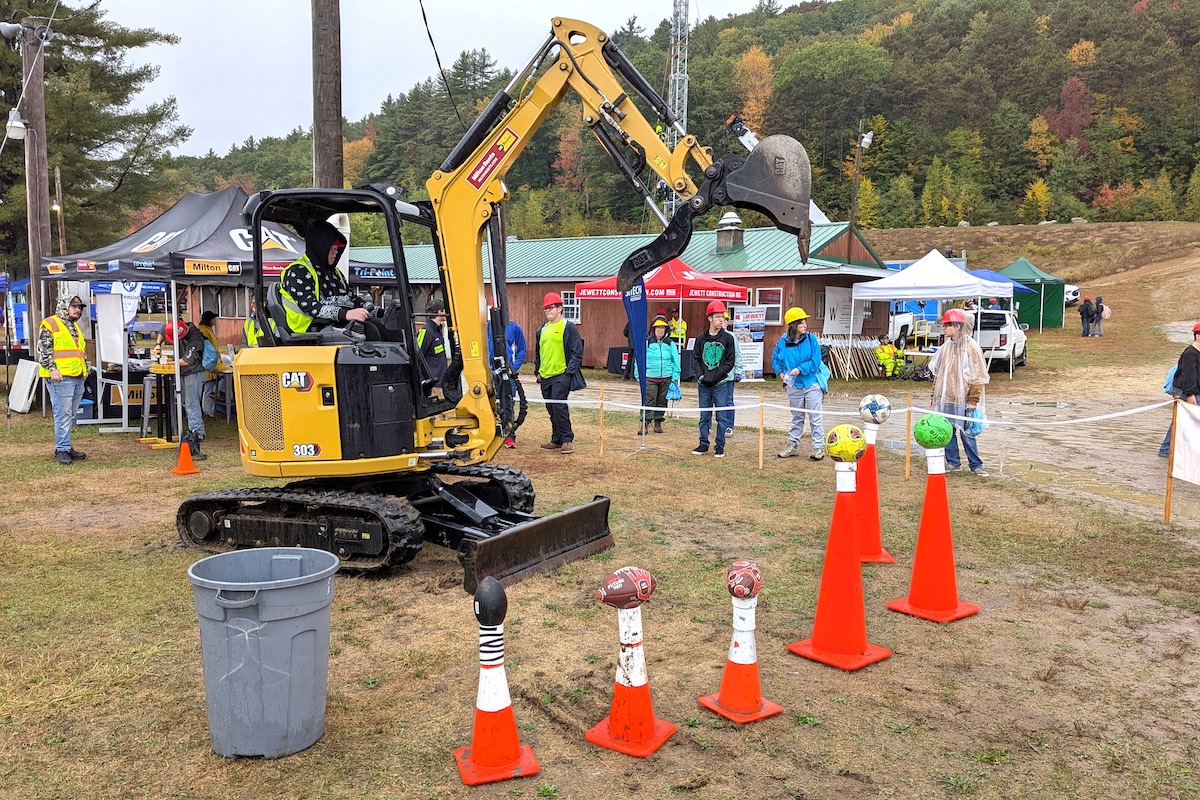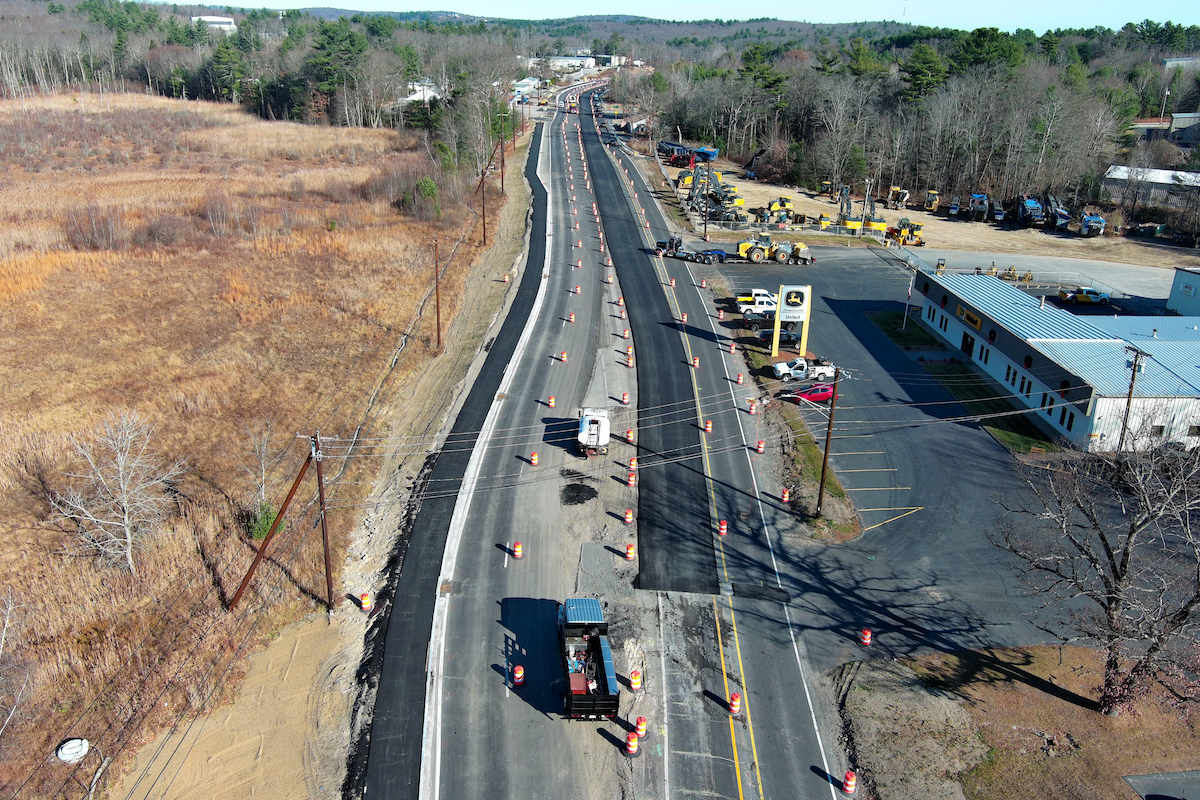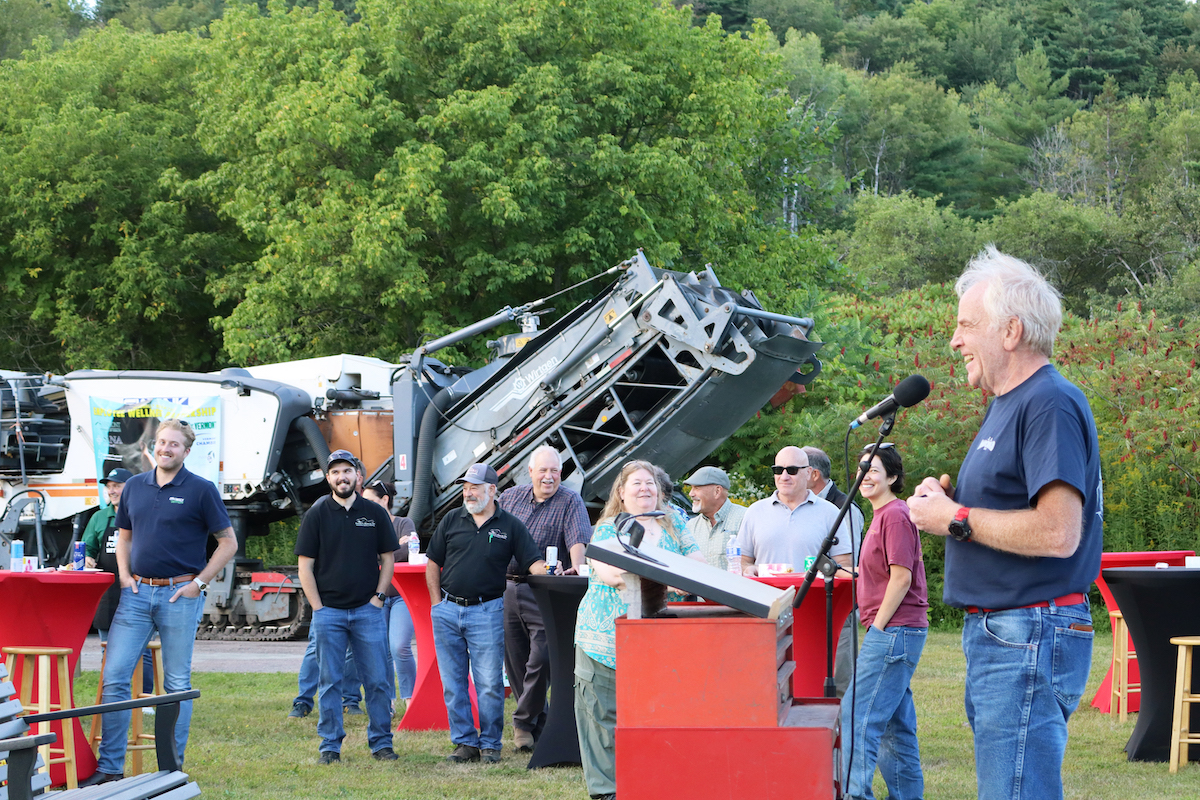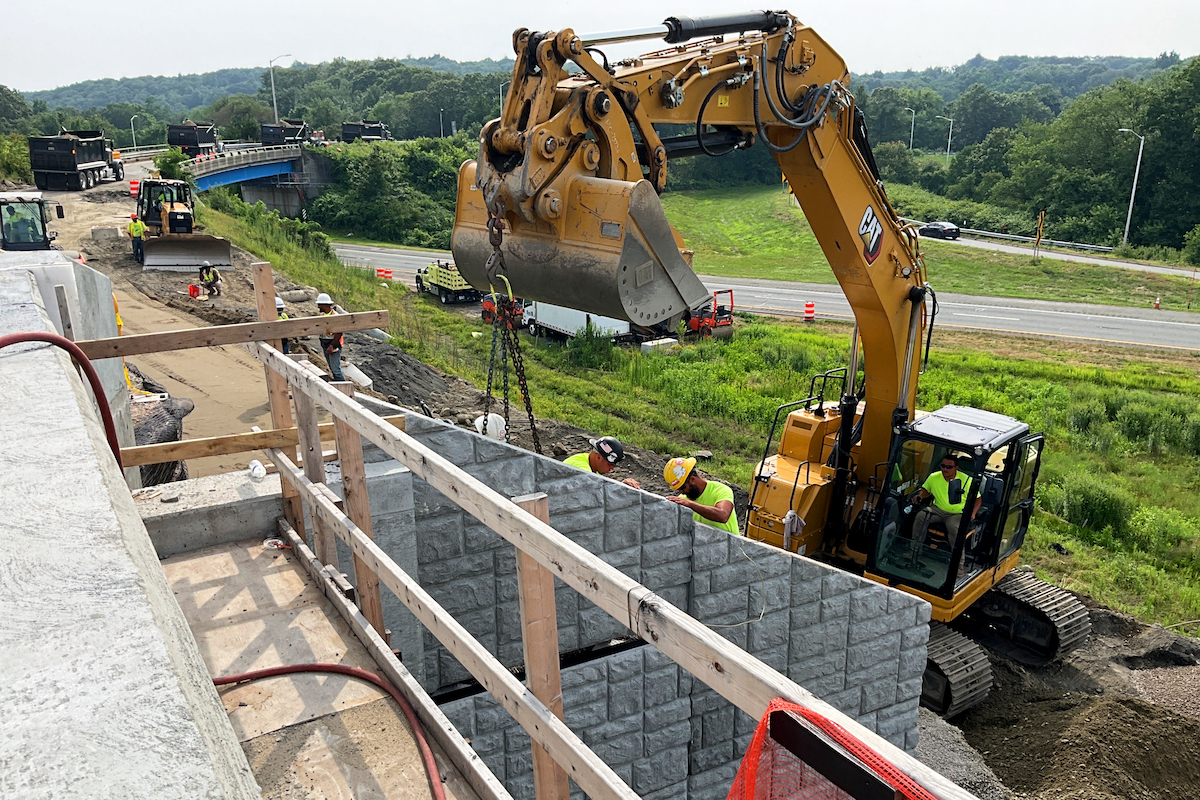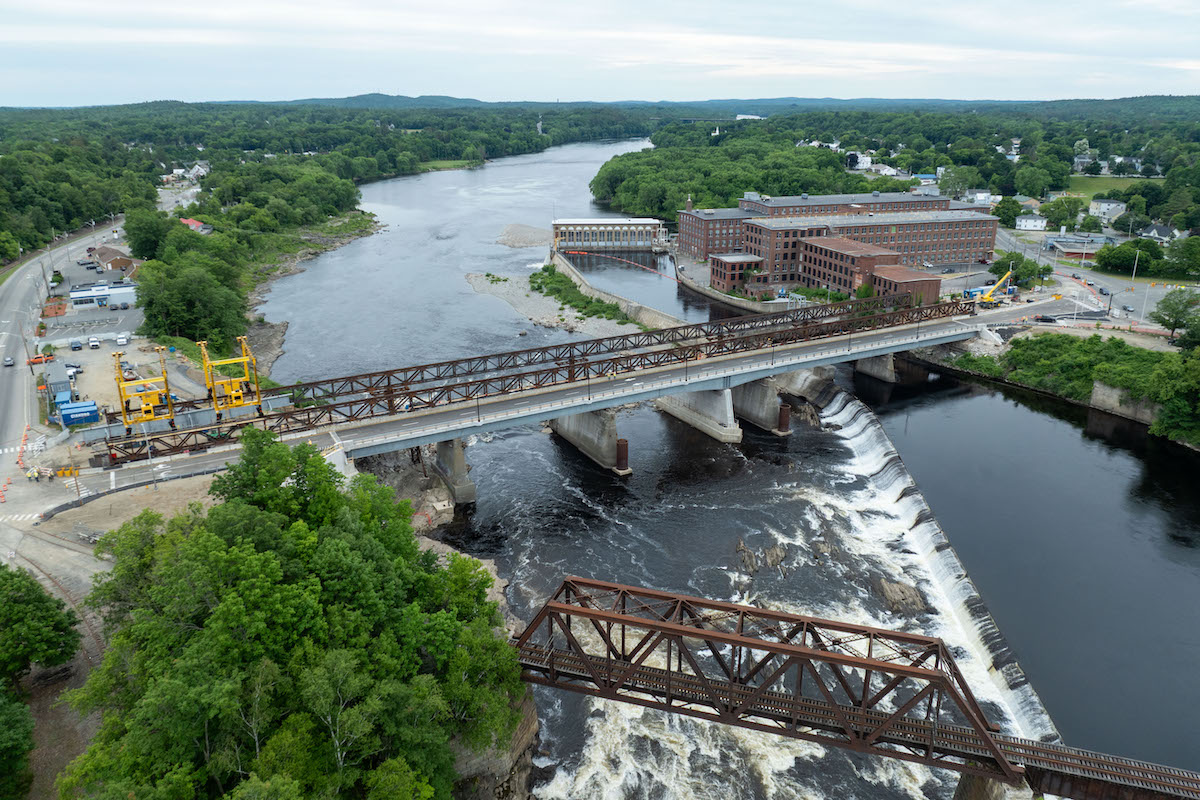In the town of Brewer in north central Maine, the I-395/Route 9 Connector Project is well on its way to an anticipated completion next year. The Maine Department of Transportation (MaineDOT) project was developed to complete a “missing link” between Interstate 395 and State Route 9, which runs from the U.S.-Canada border at the town of Calais — in the eastern part of the state — to the border with New Hampshire in the west. The new road will provide improvements to transportation system connection, safety, and mobility.
Construction on the connector project, which has an estimated total project cost of $107.2 million and is funded by federal, state, and grant sources, began in January 2022 and is expected to be complete in the summer of 2025.
The two highways are major traffic routes for the greater Bangor/Brewer area, which is the economic and employment center for the north central region of the state. The area is also a hub for the movement of goods because of its proximity to the interstate highway system and Canadian markets.
The I-395/Route 9 Connector Project is projected to reduce travel times to the Calais area and to all of eastern Maine. The new connector between the interstate and the state route will also reduce heavy truck traffic and Bangor-area congestion along roads better suited for local traffic. Trucks coming to and from Canada will no longer need to use State Route 1A through the town of Holden or the winding, narrow State Route 46.
“The major components of the I-395 project involve significant roadway, bridge, and environmental improvements,” said Tim LePage, Sargent's North Maine Regional Manager. “The project aims to build a two-lane highway connecting Interstate 395 with State Route 9 [Airline] to enhance transportation connections. The total length of the project is approximately 7.5 miles, crossing through Brewer, Holden, and Eddington.

| Your local Esco Corporation dealer |
|---|
| Genalco |
“Multiple bridges are being constructed, including ones on Lambert Road and Clewleyville Road, along with abutment work for bridges on Eastern Avenue and other locations. The project will tie into both Route 9 and I-395, with work scheduled to complete the tie-ins in 2024.
“The project features extensive water management efforts, such as the installation of over 850,000 vertical feet of prefabricated wick drains in swampy areas like Felts Brook to stabilize the ground, as well as the use of drainage blankets and settlement platforms to handle water-saturated areas.
“Wildlife crossings have been incorporated into the design, with fences directing wildlife toward safe passageways under the road, minimizing the impact on local ecosystems.”
“This will be a controlled-access highway, providing access only at the Route 1A and Route 9 intersection,” MaineDOT Director of Communications Paul Merrill said. “The new connector will be designated Route 9. The section of Route 9 from this intersection to Brewer will be designated Route 9 Business.”

| Your local Trimble Construction Division dealer |
|---|
| SITECH Northeast |
He added that the project includes: five roadway crossings — Route 1A, Eastern Avenue, Lambert Road, Clewleyville Road, and Levenseller Road; two snowmobile crossings; seven stream crossings — three in Felts Brook, one in Felts Brook Tributary, two in Eaton Brook Tributary, and one in Eaton Brook; three wetlands crossings; and two wildlife crossings.
While no part of the mainline Route 9 Connector is yet open for traffic, Merrill said, “We have completed bridges at Eastern Avenue and Clewleyville Road. Eastern Avenue is currently carrying local traffic over the Route 9 Connector.”
Several key parts of the I-395 project have been completed or are underway, marking significant milestones, according to LePage.
“The initial major milestone was the clearing of the 7.5-mile corridor that runs through Brewer, Holden, and Eddington, which allowed the project to begin in earnest,” he said. “Over 850,000 vertical feet of prefabricated wick drains were installed in the Felts Brook area to stabilize water-saturated soil, a critical step completed early in the project.

| Your local Volvo Construction Equipment dealer |
|---|
| Tyler Equipment |
“Sargent completed the importation and placement of 90,000 yards of a drainage blanket over swampy areas before road postings, and approximately 1 mile of gravel was placed in 2022. More gravel work will continue once the clay soil has consolidated. Also in 2022, we constructed a cofferdam at Felts Brook Crossing, the lowest point of the project. A box culvert was installed early in the process, after we obtained a waiver to begin in-stream work earlier than usual.
“AeroAggregates provided 66,000 cubic yards of lightweight foamed glass aggregate fill, and a third of this product was installed around two large box culverts on Felts Brook and its tributary by late 2022. With up to 20 deliveries per day, managing these logistics in conjunction with ongoing construction activities required careful planning and coordination.
“T Buck Construction, a key subcontractor, completed the installation of a bridge on Lambert Road as part of the first phase of the project.”
Currently, large scale paving operations are taking place. “The mainline of the connector is receiving the third of four layers of pavement,” Merrill said. “The ramps which connect I-395 and Wilson Street [Route 1A] to the Route 9 connector are receiving the final layer of pavement. Also, guardrail, wildlife fencing, highway lighting, and signage are being installed. Final slope stabilization is underway, with riprap, loam, and turf reinforcement matting being placed.”

| Your local Hyundai dealer |
|---|
| Equipment East |
LePage added that gravel work is ongoing, with a quarry in the town of Clifton processing an expected total need for 168,000 cubic yards of gravel. Installation of wildlife crossings is also underway.
A wide range of Caterpillar, Mack, Trimble, and Link-Belt equipment is being utilized, including excavators, bulldozers, rollers, skid steer loaders, and crushers.
The I-395/Route 9 project has required traffic detours. “Clewleyville Road was shut down for the winter, starting in January 2023, to allow for the excavation of bridge abutments,” LePage said. “This detour was necessary to facilitate bridge construction. During the early phase of the project, municipal roadways in Brewer, Eddington, and Holden were heavily used to transport materials. While not explicitly listed as detours, these routes experienced increased traffic and were critical to the project’s initial stages, especially during the placement of 90,000 yards of sand before the roads were posted [closed to heavy vehicles].”
Regarding construction challenges during the course of the project, Merrill said, “There were unstable soil conditions in several areas of the project. Approximately 66,000 cubic yards of foamed glass aggregate [FGA] was used as a lightweight fill material to build the road on. In addition to the FGA used, there was also a nine-month preload surcharge with normal weight fill, used in areas adjacent to the FGA.”

| Your local Wirtgen America dealer |
|---|
| United Construction & Forestry |
| WI Clark |
Other challenges and issues that have been addressed during the connector project include:
- Limited access and footprint in wet areas: The project runs through water-saturated areas, particularly in the Felts Brook region, requiring the installation of over 850,000 vertical feet of wick drains to remove water and stabilize the ground. To ensure a stable working platform, Sargent imported and placed 90,000 yards of a drainage blanket in swampy areas.
- Tight construction schedule: LePage said that Sargent had to work day and night to place the 90,000 yards of sand before the roads were posted, utilizing the cold weather to their advantage. This time-sensitive work was crucial for the early stages of the project.
- Stream crossings: In-water work, such as constructing a cofferdam in Felts Brook, was complex due to the tight schedule and environmental considerations. Sargent secured a waiver to begin stream work a month earlier than usual and completed it three days before the deadline.
“Cold weather was both a challenge and an advantage,” LePage said. “It helped in accessing areas for early drainage and sand placement. Additionally, we had to monitor the settlement of soil over time before continuing with gravel placement, further impacted by winter shutdowns for certain roadways like Clewleyville Road.
“The presence of clay soil required a long consolidation period after surcharge and monitoring of settlement plates. This soil type poses ongoing challenges for achieving stable ground conditions before continuing with additional road and bridge construction.”

| Your local Case Construction Equipment Inc dealer |
|---|
| Beauregard Equipment |
| Monroe Tractor |
- Owner: Maine Department of Transportation
- Primary Contractor: Sargent Corporation, Orono, Maine
- Subcontractors and Material Suppliers: T Buck Construction (bridges); AeroAggregates (foamed glass lightweight fill); American Concrete Industries (precast concrete); CSI Concrete Systems Inc. (precast); Concrete EJP (pipe); Strescon Limited (reinforced concrete pipe); Keller North America (wick drains); Northeast Paving (hot mix asphalt paving); H. Hathaway Drilling & Blasting (drilling and blasting); East Coast Signals (electrical); CA Newcomb and Sons (guardrail and fence)























